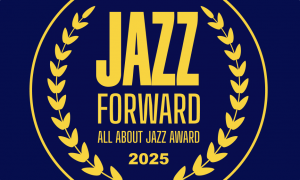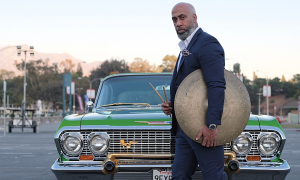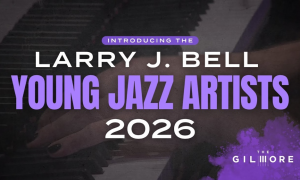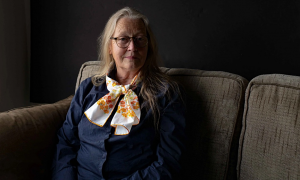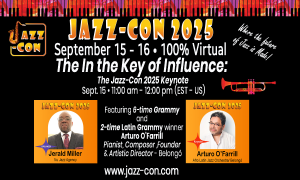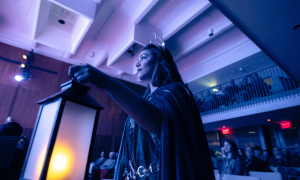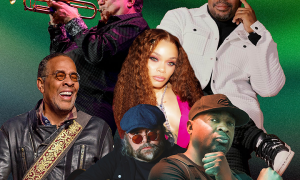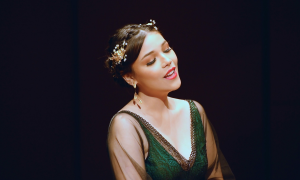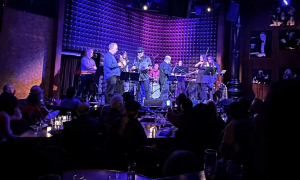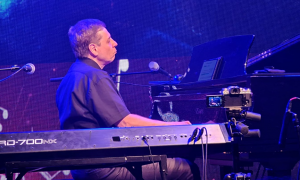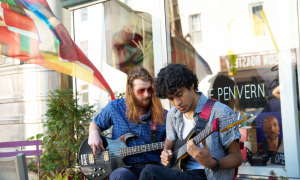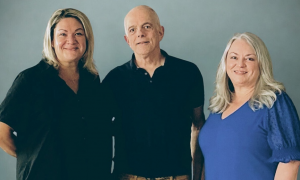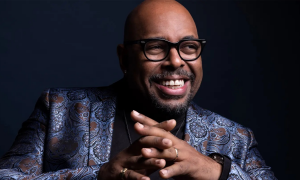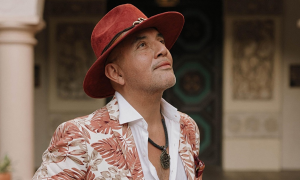It's fitting that the cover of saxophonist Mark Lopeman's latest album, Nice Work If You Can Get It, is a watercolor portrait from his daughter Rosie. After all, Lopeman approaches his instrument like a painter himself, utterly spellbinding in his ability to illustrate various moods from the unbridled joy of “My Reverie" to the warm caress of “I'm a Fool to Want You" to the gentle introspection of “Everything Happens to Me." Stellar musicians such as the New York-based Lopeman aren't simply born; they are made, creatively evolving as the years pass. Lopeman discusses his roots in this in-depth interview.
Q: When did you decide to become a saxophonist?
A: That was really sort of a natural process. I don't remember there being any definite point when I sat down and decided, “I want to be a saxophonist when I grow up," or anything like that. I just started on the saxophone in grade school, and I liked it right away and played in all the school bands and everything. I also started to write almost as soon as I started to play. Then when I was in high school and started getting involved with some outside groups, I started getting calls to play gigs for money. By then I already thought of myself as a saxophonist, and I never had any other plans or ideas back then to do anything else. Now that I think about it, when I was really little, like 6 or 7 years old, before I even started to play, I had this idea that I was going to be an ornithologist. I guess that's kind of ironic. I knew all the names of all the birds and field markings and stuff. But I forgot about all that pretty soon.
Anyway, when it came time to graduate from high school the subject came up sort of head on but I never really considered doing anything but music. I know my parents must have agonized a lot about it, but not me. Then, as luck would have it, I got this scholarship at Kent State University and a requirement of that was that I declare an academic major, so I was officially a math major. I didn't care; I liked school, and I would take whatever classes they wanted me to take, but mainly I took music classes and played in the bands and hung around the music school and practiced. Eventually I transferred to the Eastman School of Music and, of course, that is a real conservatory and there it was pretty much assumed that you were preparing for a music career of some kind.
Q: Growing up, what saxophonist did you admire the most? Which of them had the most creative influence on you?
A: I always thought of myself more as a musician first and a saxophonist kind of incidentally, so my real idols in high school were writers—
Q: When did you decide to become a saxophonist?
A: That was really sort of a natural process. I don't remember there being any definite point when I sat down and decided, “I want to be a saxophonist when I grow up," or anything like that. I just started on the saxophone in grade school, and I liked it right away and played in all the school bands and everything. I also started to write almost as soon as I started to play. Then when I was in high school and started getting involved with some outside groups, I started getting calls to play gigs for money. By then I already thought of myself as a saxophonist, and I never had any other plans or ideas back then to do anything else. Now that I think about it, when I was really little, like 6 or 7 years old, before I even started to play, I had this idea that I was going to be an ornithologist. I guess that's kind of ironic. I knew all the names of all the birds and field markings and stuff. But I forgot about all that pretty soon.
Anyway, when it came time to graduate from high school the subject came up sort of head on but I never really considered doing anything but music. I know my parents must have agonized a lot about it, but not me. Then, as luck would have it, I got this scholarship at Kent State University and a requirement of that was that I declare an academic major, so I was officially a math major. I didn't care; I liked school, and I would take whatever classes they wanted me to take, but mainly I took music classes and played in the bands and hung around the music school and practiced. Eventually I transferred to the Eastman School of Music and, of course, that is a real conservatory and there it was pretty much assumed that you were preparing for a music career of some kind.
Q: Growing up, what saxophonist did you admire the most? Which of them had the most creative influence on you?
A: I always thought of myself more as a musician first and a saxophonist kind of incidentally, so my real idols in high school were writers—

Gil Evans
composer / conductor1912 - 1988








 Buy Now
Buy Now




